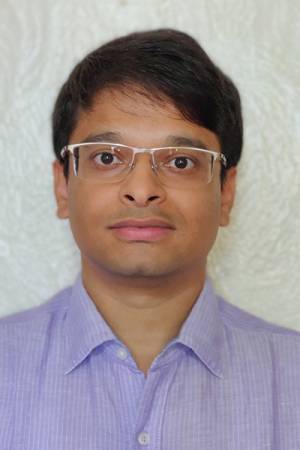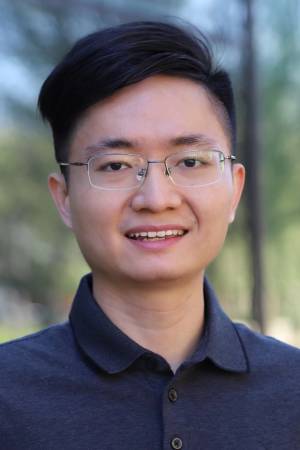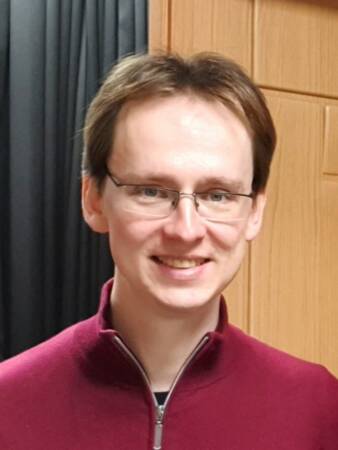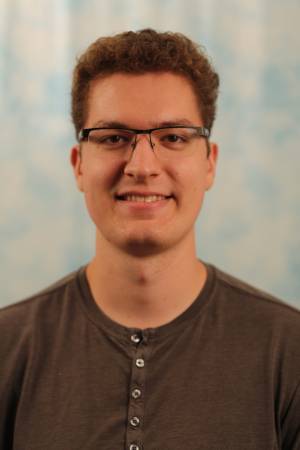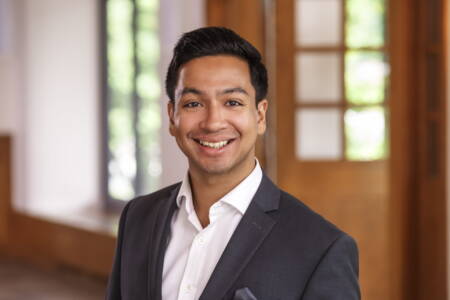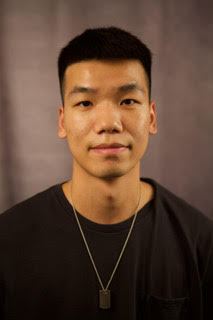Reconstructing Everything
Abstract: The presentation will be about a long-running, perhaps quixotic effort to reconstruct all of the world's structures in 3D from Internet photos, why this is challenging, and why this effort might be useful in the era of generative AI. Bio: Noah Snavely is a Professor in the Computer Science Department at Cornell University [...]
Using Robotics, Imaging and AI to Tackle Apple Fruit Production: Crop Harvest and Fire Blight Disease, The Two Major Bottlenecks for U.S. Apple Producers
Abstract Temperate tree fruit production is a significant agricultural sector in the United States, encompassing a variety of fruits like apples, pears, cherries, peaches and plums. The U.S. is the second-largest producer of apples in the world, after China. Annual U.S. production is 10 - 11 billion pounds of apple. However, apple production is complicated [...]
Moving Lights and Cameras for Better 3D Perception of Indoor Scenes
Abstract: Decades of research on computer vision have highlighted the importance of active sensing -- where an agent controls the parameters of the sensors to improve perception. Research on active perception in the context of robotic manipulation has demonstrated many novel and robust sensing strategies involving a multitude of sensors like RGB and RGBD cameras [...]
Building Generalist Robots with Agility via Learning and Control: Humanoids and Beyond
Abstract: Recent breathtaking advances in AI and robotics have brought us closer to building general-purpose robots in the real world, e.g., humanoids capable of performing a wide range of human tasks in complex environments. Two key challenges in realizing such general-purpose robots are: (1) achieving "breadth" in task/environment diversity, i.e., the generalist aspect, and (2) [...]
High-Fidelity Neural Radiance Fields
Abstract: I will present three recent projects that focus on high-fidelity neural radiance fields for walkable VR spaces: VR-NeRF (SIGGRAPH Asia 2023) is an end-to-end system for the high-fidelity capture, model reconstruction, and real-time rendering of walkable spaces in virtual reality using neural radiance fields. To this end, we designed and built a custom multi-camera rig to [...]
Building Scalable Visual Intelligence: From Represention to Understanding and Generation
Abstract: In this talk, we will dive into our recent work on vision-centric generative AI, focusing on how it helps with understanding and creating visual content like images and videos. We'll cover the latest advances, including multimodal large language models for visual understanding and diffusion transformers for visual generation. We'll explore how these two areas [...]
Learning to create 3D content
Abstract: With the popularity of Virtual Reality (VR), Augmented Reality (AR), and other 3D applications, developing methods that let everyday users capture and create their own 3D content has become increasingly essential. Current 3D creation pipelines often require either tedious manual effort or specialized setups with densely captured views. Additionally, many resulting 3D models are [...]
Trustworthy Learning using Uncertain Interpretation of Data
Abstract: Motivated by the potential of Artificial Intelligence (AI) in high-cost and safety-critical applications, and recently also by the increasing presence of AI in our everyday lives, Trustworthy AI has grown in prominence as a broad area of research encompassing topics such as interpretability, robustness, verifiable safety, fairness, privacy, accountability, and more. This has created [...]
Robots That Know When They Don’t Know
Abstract: Foundation models from machine learning have enabled rapid advances in perception, planning, and natural language understanding for robots. However, current systems lack any rigorous assurances when required to generalize to novel scenarios. For example, perception systems can fail to identify or localize unfamiliar objects, and large language model (LLM)-based planners can hallucinate outputs that [...]
Sparse-view Pose Estimation and Reconstruction via Analysis by Generative Synthesis
Abstract: This talk will present our approach for reconstructing objects from sparse-view images captured in unconstrained environments. In the absence of ground-truth camera poses, we will demonstrate how to utilize estimates from off-the-shelf systems and address two key challenges: refining noisy camera poses in sparse views and effectively handling outlier poses. Bio: Qitao is a second-year [...]
EgoTouch: On-Body Touch Input Using AR/VR Headset Cameras
Abstract: In augmented and virtual reality (AR/VR) experiences, a user’s arms and hands can provide a convenient and tactile surface for touch input. Prior work has shown on-body input to have significant speed, accuracy, and ergonomic benefits over in-air interfaces, which are common today. In this work, we demonstrate high accuracy, bare hands (i.e., no special [...]
Auptimize: Optimal Placement of Spatial Audio Cues for Extended Reality
Abstract: Spatial audio in Extended Reality (XR) provides users with better awareness of where virtual elements are placed, and efficiently guides them to events such as notifications, system alerts from different windows, or approaching avatars. Humans, however, are inaccurate in localizing sound cues, especially with multiple sources due to limitations in human auditory perception such as [...]


